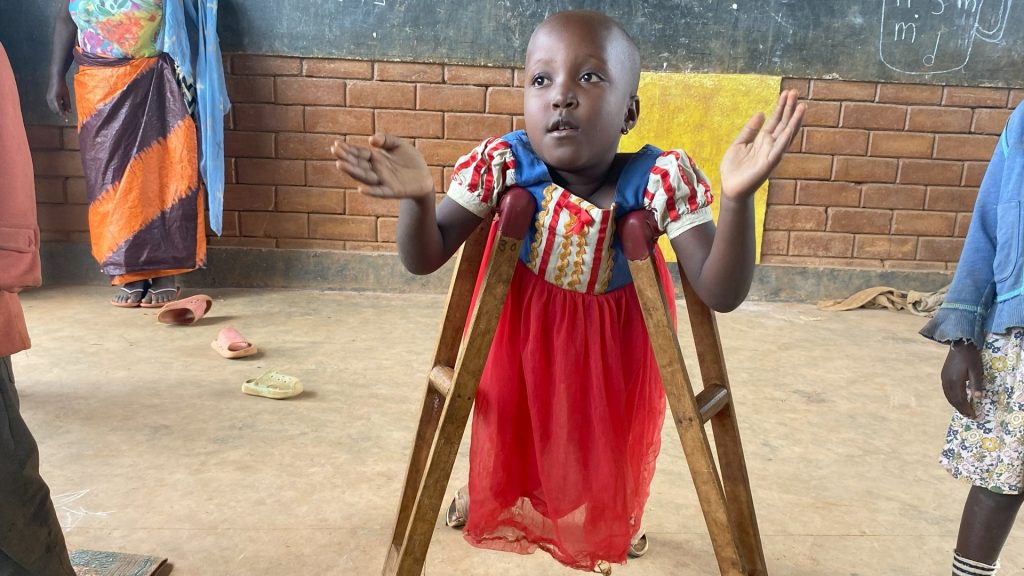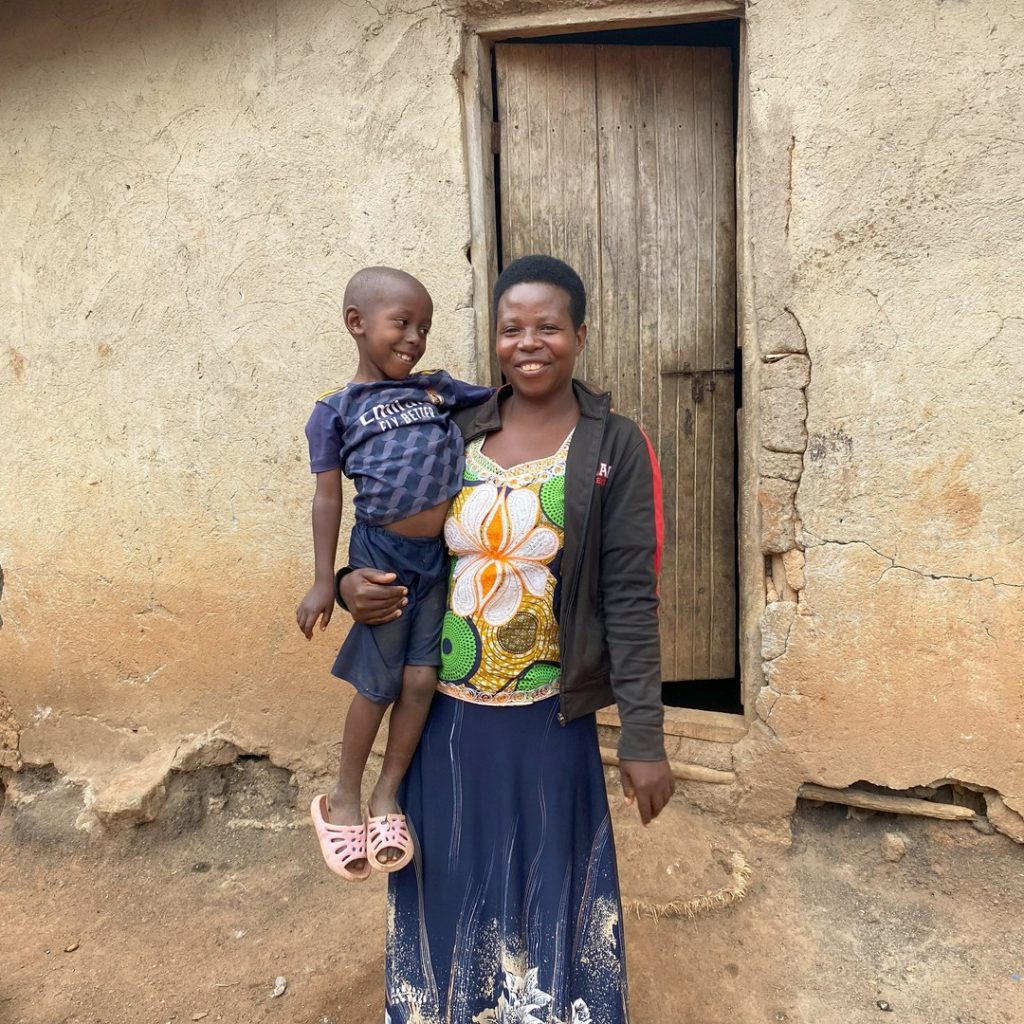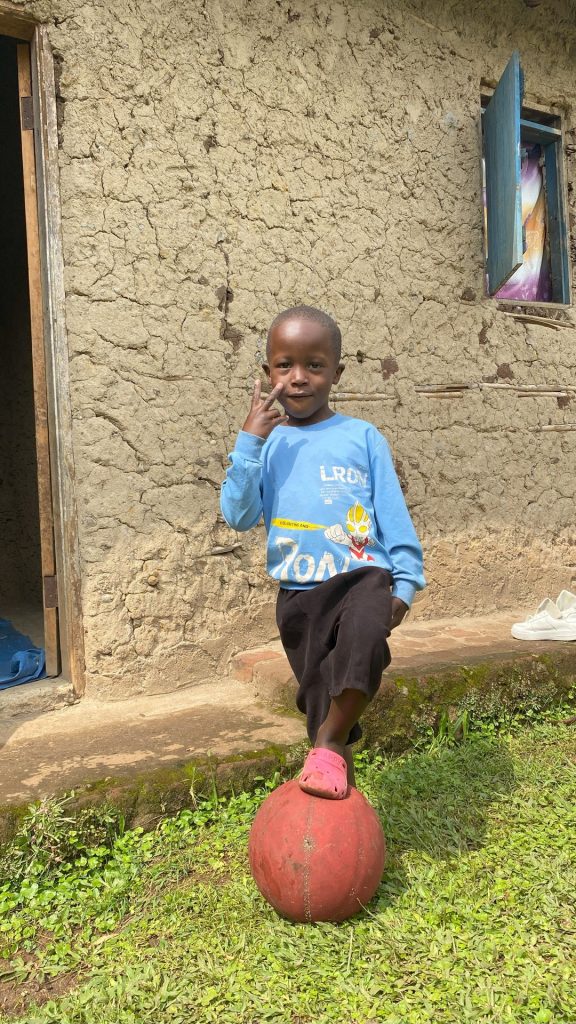“She was once abandoned but now she is full of life” – How children with disabilities are finding their potential in Uganda
In many parts of Uganda, children born with disabilities face an uphill battle from the very start. Limited access to health services, delayed developmental support, and deeply rooted stigma in communities often define their early years. However, change is taking root through the Intervention for Disability in Early Childhood (IDEC) project, implemented by Finn Church Aid (FCA) with funding from UNICEF.
By identifying disabilities early and linking children to appropriate care, the IDEC project not only restores hope but also opens the door to education, giving children the chance to grow, learn, and thrive in school like their peers.
The journeys of Amutuhaire, Mubaraka, and Mukiza are powerful reminders of what is possible when early intervention meets unwavering love and children are given the opportunity to take their rightful place in the classroom.
Amutuhaire’s triumph over disability and neglect
In Kyaka II Refugee Settlement in Kyegegwa District, six-year-old Clever Amutuhaire stands proudly among her classmates at Light Nursery and Primary School, leading a rhyme with joy beaming from her face. Just a few years ago, her life was a far cry from the vibrant classroom she now calls home.
Amutuhaire was born with a severe physical disability that left her legs stunted and immobile. Abandoned shortly after birth, she was left alone in an empty house with no food, no family, and no means to survive except for the kindness of neighbours who occasionally brought her something to eat.
She could not walk, talk, or control her bladder and bowel movements. She was malnourished, voiceless, and invisible.
Then Grace Turyaba, a caregiver in Bujubuli zone, found her lying helpless on a mat. With no one willing to take responsibility, Turyaba took her in.
“She became part of my family,” Grace recalls. “Even though I had little, I gave her all the love I could,” Turyaba says.

A moment of revelation came when Amutuhaire repeated Grace’s phone number out loud. That spark of intelligence led to her enrollment in nursery school. A story aired on Radio West about her caught the attention of a local health worker, who referred Amutuhaire to the IDEC project.
FCA stepped in, arranging her referral to CoRSU Rehabilitation Hospital for surgery, therapy, and mobility support. Turyaba also received training on how to support Amutuhaire’s rehabilitation at home.
Today, Amutuhaire walks to school on her own, sings in class, and ranks among the top of her peers.
“She laughs and sings,” Turyaba says with pride. “She was once abandoned, but now she’s full of life. IDEC gave her a future I never thought possible. I know that one day she will grow into a confident young woman, complete her education, and use her story to inspire others.”
Mubaraka’s journey of hope and healing
In Kanyango village, Mubende District, six-year-old Emmanuel Mubaraka runs freely through his home compound, smiling and full of energy. But his early years were marked by pain and uncertainty.

When Mubaraka was just six months old, he fell seriously ill and was taken to a local clinic for treatment. There, he received an injection, but shortly afterward, his right leg began to swell. What started as a small reaction grew worse with each passing day, until he could no longer crawl, sit, or sleep comfortably.
His mother, Diana Furaha visited several health facilities in search of answers, but none could offer effective treatment.
“I started losing hope,” Furaha says. “But something in me said, ‘Don’t stop.’ I believed God would send us help.”
Help arrived through the IDEC project, which facilitated Mubaraka’s referral to CoRSU Rehabilitation Hospital. There, he underwent surgery and was fitted with a leg aid. Furaha received support and training from an IDEC-trained Village Health Team member, enabling her to provide home-based therapy.
Then one day, Mubaraka pulled himself up on a chair for the first time.
“I just cried,” Furaha recalls. “From that day, I knew he would walk.”
Now, Mubaraka walks two kilometres to school every day, plays football with friends, and dreams of becoming a doctor.
“He is my miracle,” Furaha says. “Thank you IDEC, FCA, and UNICEF. You gave my son a second chance.”
From pain to play: Mukiza’s second chance at life
In Kidukuru village, Kabarole District, five-year-old Jonathan Mukiza races after a football in his compound, laughter in the air. A few years ago, such joy seemed unimaginable.

Mukiza was born without an anal opening. After an unsuccessful initial surgery, he continued to suffer from pain and complications. His mother, Tusabe Dorothy, feared for his life and future.
“My other children were born healthy,” she says. “I worried he wouldn’t survive, let alone ever go to school.”
When Mukiza was two years, an FCA staff visited their home and connected him to the IDEC project. FCA referred her to Children’s Surgical Hospital in Entebbe, where he underwent corrective surgery. IDEC covered all medical and transport costs and supported the family through regular follow-ups and physiotherapy.
“He now eases himself peacefully,” Dorothy says with a smile. “He even started school. He’s in middle class. I never thought I’d see that day.”
Now an advocate for disability inclusion in her community, Dorothy actively encourages other parents not to hide their children.
“With the right support, we can help these children live a good life. “Thank you FCA and UNICEF. You gave my son a future. You gave me hope.”
Every child deserves a chance
Families across the five districts where IDEC operates are learning that disability does not mean inability. Early identification, timely referrals, inclusive education, and community support are proving to be game changers for thousands of children.
From abandoned homes to vibrant classrooms, from pain to play, children like Amutuhaire, Mubaraka, and Mukiza now walk, learn, and dream because someone believed in them and because a system stood by them.
About the IDEC Project
The Intervention for Disability in Early Childhood (IDEC) project operates in Mubende, Kassanda, Kikuube, Kyegegwa, and Kabarole districts. The project actively identifies children with disabilities and developmental delays early and connects them to the care and support they need.
It also empowers families and communities to challenge stigma and create inclusive, nurturing environments where every child can thrive and transition into education.
Text and pictures: Linda Kabuzire / FCA